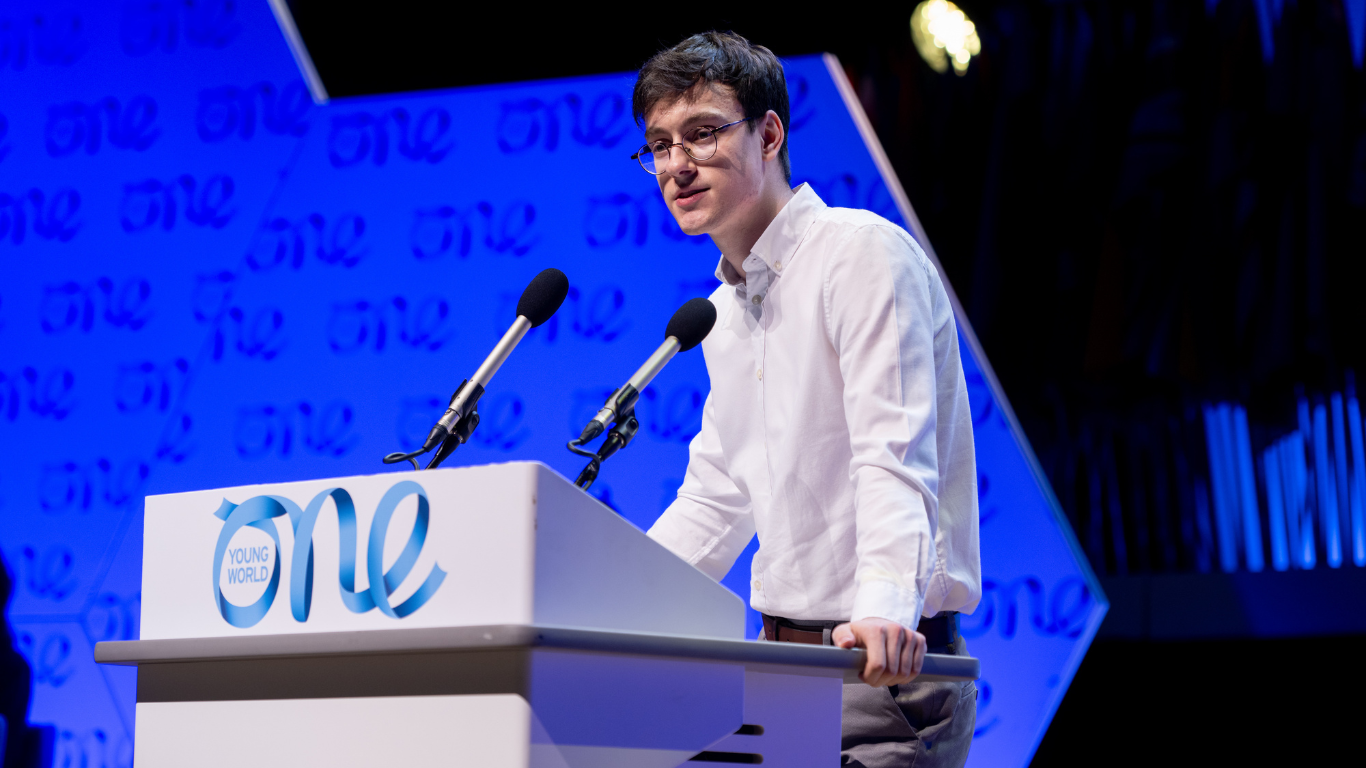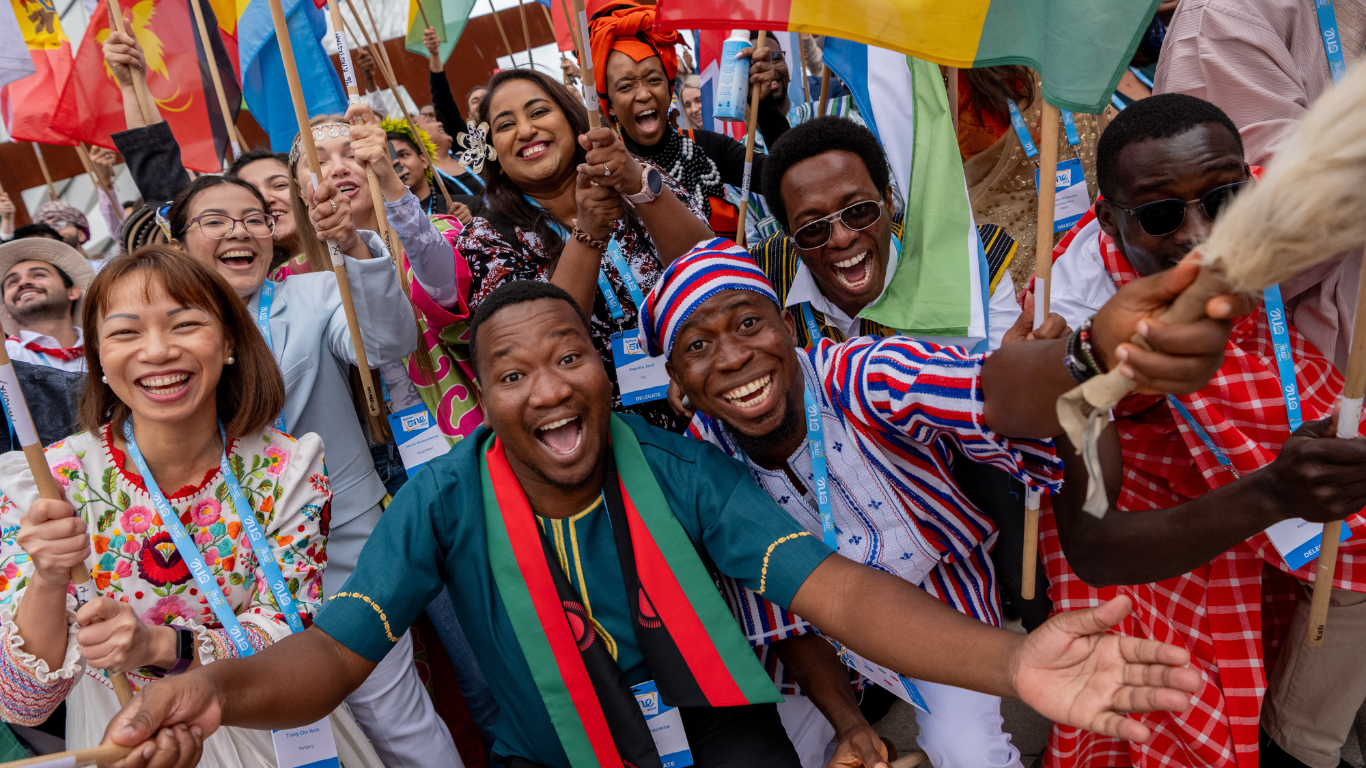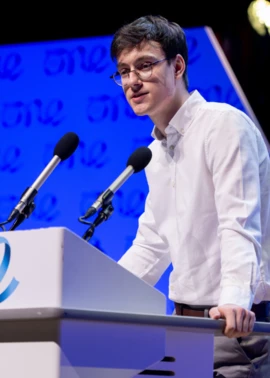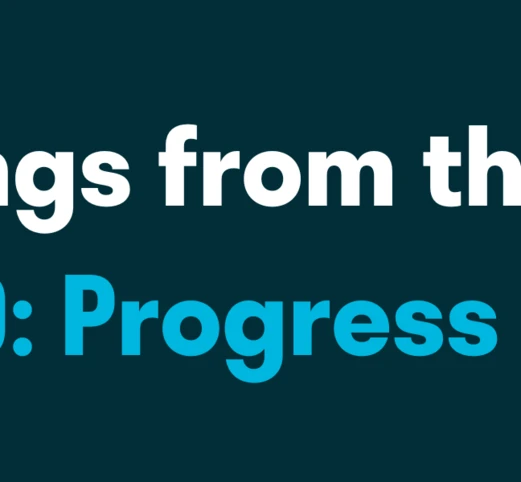How much headway has the UN made in engaging young people in policy and decision-making processes in five years?
At the One Young World Summit Belfast, mental health advocate Matthew Taylor declared, “We are not the leaders of tomorrow, we are the leaders of today.” Matthew’s statement is simple yet powerful because if we are ever going to achieve the 17 Sustainable Development Goals (SDGs) by 2030, we need to hear the voices of the youth who will inherit the planet we leave them. This is why the United Nations launched Youth2030.

What is Youth2030?
Launched in September 2018, Youth2030 is the United Nations Youth Strategy. It aims to align the efforts of various UN entities and partners to ensure that young people are empowered, their rights are protected, and they are meaningfully engaged in policy-making and decision-making processes, ultimately harnessing their potential as agents of change in achieving the SDGs.
It focuses on five key priority areas:
- Engagement, Participation, and Advocacy: ensuring young people’s voices are heard and considered in decision-making processes at all levels.
- Informed and Healthy Foundations: promoting the health and wellbeing of young people, ensuring they have access to quality education and learning opportunities.
- Economic Empowerment through Decent Work: creating opportunities for youth employment and entrepreneurship to ensure young people can contribute to and benefit from sustainable economic development.
- Youth and Human Rights: protecting and promoting the rights of young people, ensuring they live free from violence and discrimination.
- Peace and Resilience Building: engaging young people in promoting peace, security, and resilience in their communities and beyond.
Youth2030: Progress Report 2024
The Youth2030: Progress Report 2024 analyses how the UN has transformed the way that it works for and with young people, and highlights what improvements still need to be made.
The document is based on reporting from 50 UN entities and 132 UN Country Teams.

What are the reports' critical findings?
Youth engagement and participation
The report found a significant rise in youth engagement across UN entities and Country Teams, specifically among diverse youth groups such as young women, youth with disabilities, migrant youth, and refugee youth.
A notable example of this is the UNHCR Youth in Community Resilience initiative. This programme empowers migrant and refugee youth to work on projects and initiatives that address local challenges and enhance resilience within their communities. By involving youth in resilience-building activities, the initiative aims to enhance their skills, foster community cohesion, and create stronger, more adaptable communities, capable of withstanding and recovering from various challenges.
Youth in strategic planning
Listening to the voices of youth is critical at all levels, from planning to policy implementation, and we won’t achieve the 17 SDGs without listening to young leaders.
Encouragingly, the Youth2030 Progress Report found that there has been an increase in the inclusion of youth-focused results in the United Nations Sustainable Development Cooperation Frameworks (UNSDCFs), the strategic planning and implementation tools used by the United Nations to support countries in achieving the SDG’s. This reflects an improved focus on youth within the UN's strategic planning processes and shows a promising pivot towards including youth voices in the plight to achieve the SDGs.
After attending COSP17 at the United Nations headquarters our Ambassador, Elvis Martin, concluded “We as young people bring fresh perspectives and innovative ideas. Our involvement [in events like COSP] ensures that the voices of the younger generation are heard, especially those from diverse backgrounds.”
Funding and transparency
To achieve the SDGs, young leaders need funding, and while many UN entities and United Nations Country Teams (UNCTs) are dedicating funds to youth-related initiatives, there is a need for improved tracking and transparency in reporting on funding, allocation, and expenditure rates at all levels.
Despite this being highlighted in the report, there are no specific details on what measures the UN will take to improve funding transparency.
Ella Robertson, Managing Director at One Young World commented, "The Youth 2030 Progress Report is a promising indicator that young people are beginning to be meaningfully engaged in policy and decision-making processes, and whilst this is a step in the right direction, we would like to see clear measures on how they're planning to improve the level of youth-related funding and funding transparency outlined in future reports. At One Young World, we're committed to trying to increase funding opportunities for young leaders - it's a key strategic goal over the next few years. We hear time and again from our community that their biggest obstacle to scaling their impact is securing investment and we have seen the difference it makes."
Best practices and lessons learned
As the UN listens to and increasingly involves the voices of young people in their policymaking decisions, best practices need to be made and evolved to ensure that young people are being adequately heard and protected in UN initiatives.
While the Youth2030 report found documentation on best practices and lessons learned concerning youth issues published by 75% of UN entities in 2023, this was a slight decrease from 81% in 2021.
Read the full Youth2030 Progress Report here!
Author

